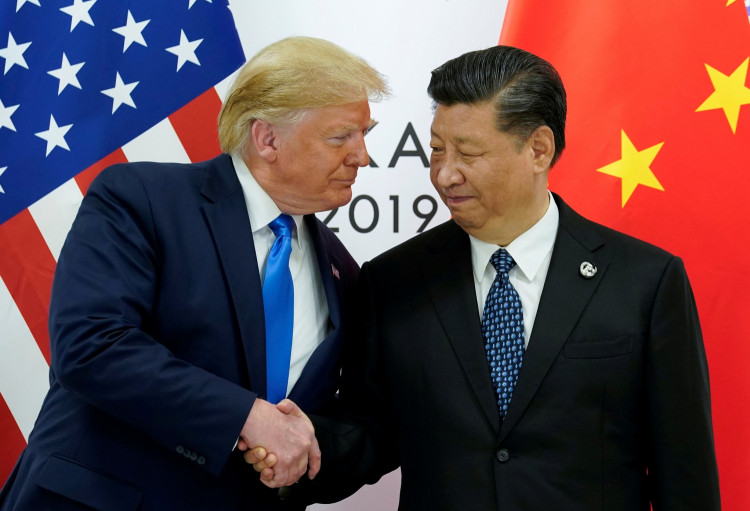Chinese President Xi Jinping's diplomatic tour through Vietnam, Cambodia, and Malaysia this week has drawn sharp criticism from U.S. President Donald Trump, who suggested Xi's meetings, particularly in Hanoi, were intended to "screw" the United States economically amid escalating tariff tensions.
Trump's remarks came as Xi met with Vietnam's top leader, To Lam, and Prime Minister Pham Minh Chinh in Hanoi, culminating in the signing of 45 agreements, including plans for a major rail infrastructure project worth $8 billion. "I don't blame China; I don't blame Vietnam," Trump told reporters at the White House. "That's a lovely meeting. Meeting like, trying to figure out, 'how do we screw the United States of America?'"
Vietnam has recently become a key battleground in Trump's escalating tariff war, facing a 46% duty on its exports imposed by the U.S. administration. Hanoi remains economically tied to both Washington and Beijing, importing roughly $30 billion in goods from China in the first quarter of this year alone, while exporting $31.4 billion to the U.S.
China, meanwhile, faces U.S. tariffs totaling 145%, intensifying its efforts to deepen regional economic ties. In a pointed statement in Vietnam's state newspaper Nhan Dan, Xi Jinping stressed that trade wars produce "no winner" and cautioned against protectionism, asserting it "leads nowhere."
Xi's visit included symbolic gestures, such as laying a wreath at the mausoleum of Vietnam's revolutionary leader Ho Chi Minh. More substantively, China committed to conducting feasibility studies for two additional railway lines intended to bolster economic integration between the neighbors.
Vietnamese leader To Lam emphasized the urgency of these rail developments, describing them as "the highest priority" for bilateral infrastructure cooperation and encouraged China to provide concessional loans. Details released indicated that the feasibility studies alone will cost around 9.95 million yuan ($1.36 million).
Yet, beneath the veneer of cooperation lies historical mistrust dating back to a brief border conflict in the late 1970s. Recent agreements, analysts note, indicate a pragmatic shift toward prioritizing economic cooperation despite lingering security concerns.
Phan Xuan Dung, a research officer at the ISEAS - Yusof Ishak Institute, suggested Vietnam's diplomatic balancing act is likely to continue, predicting that "Vietnam might seek to balance this significant Chinese engagement with comparable diplomatic outreach to the United States or other partners."
Meanwhile, U.S. Treasury Secretary Scott Bessent addressed global economic concerns, asserting to Bloomberg TV that despite escalating tariffs and tensions, a significant economic "decoupling" between China and the U.S. remains avoidable. However, he conceded that such an outcome "could" occur if current tensions persist unchecked.
Chinese officials, notably Xia Baolong, criticized the U.S. tariff policy as "extremely shameless," arguing it aimed to destabilize Hong Kong's economy as well. Xia defiantly stated China was unafraid, telling critics to "wail in front of the 5,000 years of Chinese civilization."






